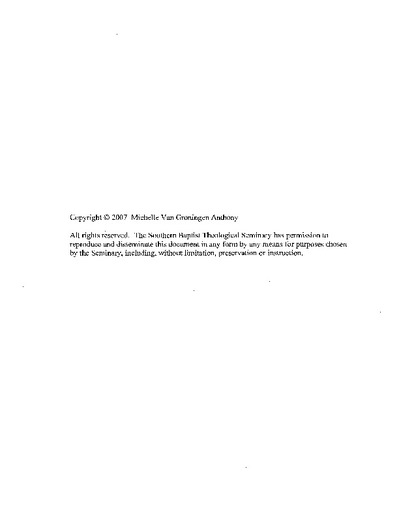The relationship between marital satisfaction and family cohesion among evangelicals
Abstract
This dissertation examines the relationship between marital satisfaction and family cohesion across three family life spans among evangelicals. Chapter 1 defines the factors involved when studying the social sciences of marriage, parenting, cohesion and adaptability, and family life cycles. Attention is also given to historical research, trends, recent contributions, and theological insights that apply to the aforementioned subjects.
Chapter 2 sets a biblical and theological foundation and thereby acts as a guide for defining values and focus for the precedent literature. Specifically, this chapter analyzes the contributions in the fields of marriage, child-rearing, and family development from a social historical perspective.
Chapter 3 examines the methodological design for this body of research through four guiding research questions. In addition, the formulations of procedures for gathering research are identified in great detail.
Chapter 4 describes the research findings and offers the statistical analysis to show significance in relationships between a number of dependent and independent variables that constitute the marriage and family paradigm. Research questions are interpreted in light of the statistical information and reports are given through tables and figures to display relevant findings.
Chapter 5 interprets the data in a conclusive manner. It explains what the significant findings represent for marital satisfaction and the relationship this has with family cohesion, family adaptability, and on the family life cycle. Findings are then applied to a specific ministry setting. For those interested in the fields of education or Christian education, this chapter explores issues related to this study, from which the reader my benefit from further research.
Key Words . marriage, adaptability, cohesion, satisfaction, evangelical, family, life cycle, marital happiness, and marital satisfaction.

